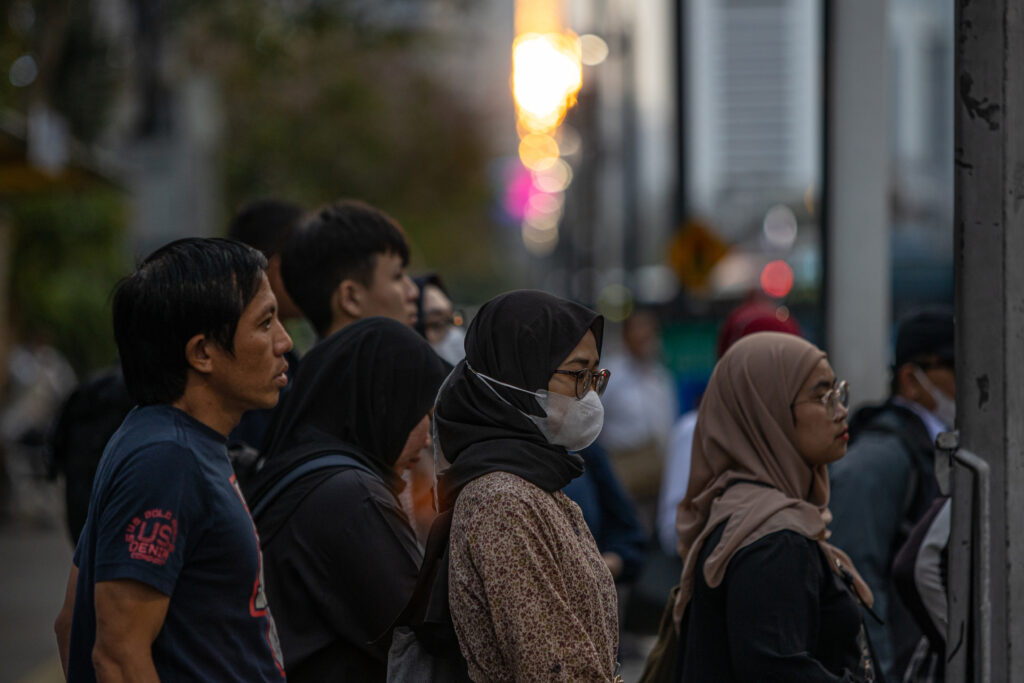Indonesia is gearing up to capitalise on its demographic dividend by enhancing education, developing technology-based skills and creating more job opportunities for the younger generation. But the demographic dividend is only anticipated to last until 2045 and few preparations have been made for the impending aging population. With the productive population lacking income security for their elderly years, concerns have been raised about the sustainability of the demographic bonus era.
Data from Indonesia’s National Social Security Council reveals that in 2023, only 35.8 million out of Indonesia’s 146.6 million-strong active workforce were enrolled in old age-related income protection programs. Fewer than 15 per cent of the entire workforce has taken steps to prepare for their retirement.
Low participation rates in old age employment insurance could potentially lead to a rise in elderly poverty. Currently, over 40 per cent of the elderly population in Indonesia are living in poverty. A study by the PRAKARSA also found that the assets of older generations consist mainly of housing, which is often difficult to convert into immediate financial support.
The proportion of Indonesia’s population aged 60 or older is expected to increase from 11.8 per cent (33.7 million) in 2025 to 15.8 per cent (48.2 million) in 2035. A simultaneous increase in life expectancy highlights the urgent need to address the financial vulnerabilities of the elderly population post-demographic dividend. These issues are of significant concern and warrant attention to ensure the wellbeing of the aging population in the coming years.
Over the last two decades, Indonesia has improved access to old age-related income security programs. In 2004, the pivotal enactment of Law No. 40 regarding the National Social Security System (the SJSN law) provided a regulatory framework for social security administrators, board councils, programs and the management of social security funds. This law also governs two programs specifically for the elderly — Jaminan Hari Tua (Old Age Savings or JHT) and Jaminan Pensiun (Pension or JP). Since 2015, these programs have been taken care of by BPJS Ketenagakerjaan (the Social Security Administrator for Employment).
But these two old age-related income security programs are facing formidable challenges stemming from slow membership growth rates and the related risk of unsustainable funding. The number of people actively participating in JHT and JP have increased respectively from 13.1 to 17.8 million and from 6.48 to 14 million between 2015 and 2022. Despite this growth, the total proportion of active participants still fell below 20 per cent of the total workforce in Indonesia in 2022.
In response to these challenges, the Indonesian government has made substantial progress in designing employment social security programs. It has broadened membership coverage to include work accident and death benefits, and more recently introduced unemployment benefits. Both central and provincial governments are collaborating to further increase membership. In 2021, the central government enacted a Presidential Instruction (Inpres) that includes an award-based incentive mechanism to encourage increased membership, with premiums covered by third parties. Additionally, certain provincial and local governments have contributed by paying premiums for workers in the informal sector.
Despite these efforts, Indonesia’s pension program faces a significant challenge — the program has limited authority to expand its membership. Under the SJSN law, only individuals employed in the formal sector can join the program, at least until 2029. But Indonesia’s labour market structure is characterised by a large informal sector, comprising 58 per cent of the total workforce in 2021.
Two notable problems arise from the low participation rates within these programs. First, their ability to provide support when members reach old age might be compromised as the number of beneficiaries increase but contributors remain few. This is especially concerning for JHT, where resignation is the most common claim, making up 57 per cent of cases. This demonstrates JHT’s inability to provide financial protection for participants in their old age, with the fund more often regarded as short-term savings. This then jeopardises the financial sustainability of old age social security.
To deal with these problems, the government could take steps to include all Indonesians in the system by integrating informal workers — especially for JP — and offering contribution subsidies for those in need.
The notion here is that the more people involved, the better, especially considering that a member typically needs to contribute for at least 15 years before they can receive monthly pension benefits. According to International Labour Organization projections, JP’s solvency will last only until 2043, after which the fund’s prudence will come into question. By 2050, the combined annual income from contributions, investment returns and other sources is estimated to be insufficient to cover the program’s expenses.
The Indonesian government must also urgently regulate the management of pension funds to address issues like fraud and the risk of failure in benefit payments. Recent cases involving Jiwasraya and Bumiputera, two major insurance companies considered too big to fail, have contributed to a growing distrust among the Indonesian public towards insurance companies.
As Indonesia ushers in a new cabinet, the matter of pension reform should be a top priority on the agenda. Prioritising pension reform would not only contribute to the financial wellbeing of the aging population but also serve as a crucial step towards sustaining economic stability in the post-demographic dividend era.
Darmawan Prasetya is a social policy researcher at The PRAKARSA (Welfare Initiative for Better Societies), Jakarta.

